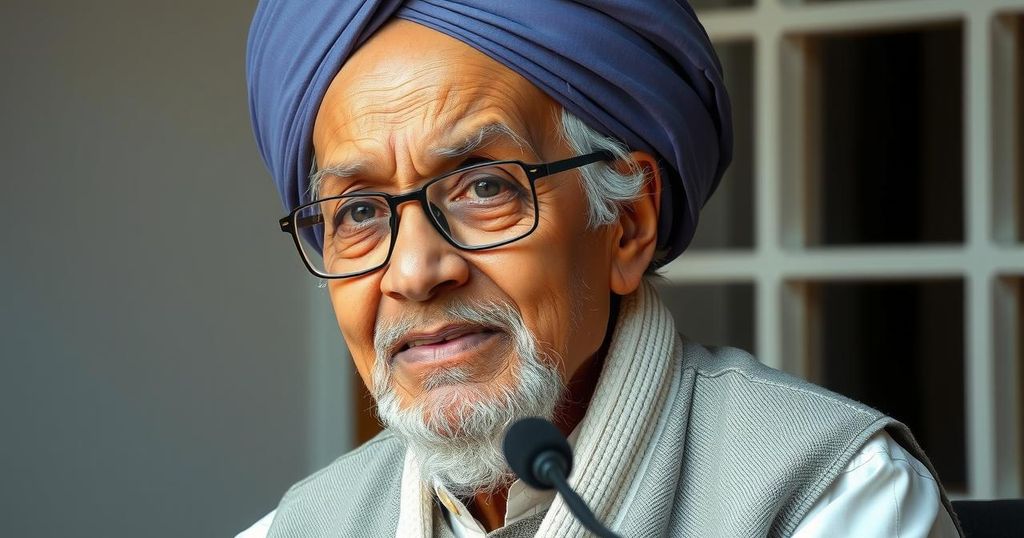Manmohan Singh, former Indian Prime Minister, died at 92 in New Delhi. He was instrumental in economic reforms that led India to significant growth, and he was the first Sikh to hold the office. Singh’s tenure is remembered for efforts in liberalizing the economy and seeking peace with Pakistan.
Manmohan Singh, the 14th Prime Minister of India, passed away on Thursday in New Delhi at the age of 92. Known for his dignified and soft-spoken demeanor, Mr. Singh played a pivotal role in transforming India into an economic force during the early 1990s. As the first Sikh Prime Minister, his tenure was marked by significant economic reforms that liberalized India’s market, promoting substantial growth while navigating complex social and political landscapes. His leadership also focused on fostering reconciliation with neighboring Pakistan.
Manmohan Singh was born in what is now Pakistan and became the first Prime Minister from the Sikh community in India, a minority concentrated in Punjab. He gained prominence in 1991, serving as Finance Minister and architect of India’s economic liberalization, which laid the foundation for future growth. His policies led to an expansion of the middle class and increased foreign investments in a country historically faced with several economic challenges and sociopolitical turbulence following partition.
The passing of Manmohan Singh marks the end of an era characterized by remarkable economic transformation in India. His visionary leadership played a crucial role in establishing India as a burgeoning economy capable of taking on global challenges. Singh’s legacy will continue to influence the nation’s future, emphasizing the importance of economic reform and international diplomacy.
Original Source: www.nytimes.com






